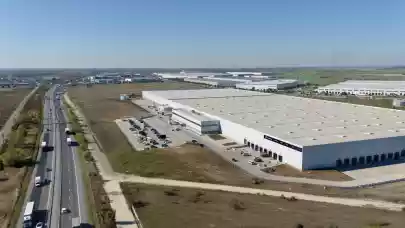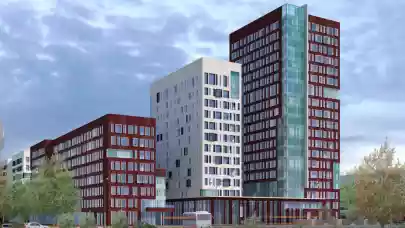
LPP Logistics has opened an automated e-commerce warehouse near Bucharest with a surface area of 65,000 sqm. The facility's fleet of nearly 1,100 robots will enable processing of over 80,000 orders per day, strengthening LPP Group's logistics infrastructure in Southeast Europe. The centre has been operational since late October and will prepare online orders for Romania, Bulgaria, Serbia, Bosnia and Herzegovina, Greece, and Hungary.
The LPP Group is expanding its capacity to handle the growing number of online orders in the developing markets of Southeast Europe. The new LPP Logistics unit, which handles logistics for the Reserved, Cropp, House, Mohito and Sinsay brands, extends the operational capacity of the region's e-commerce infrastructure and streamlines picking and shipping processes. The strategic location in Bolintin-Deal commune, near Bucharest, shortens delivery routes and enables faster order fulfilment in the region's key markets.
"The new investment in Romania represents an important step in consolidating LPP Group's strong presence in Southeast Europe. It is the most modern and automated logistics infrastructure in this part of Europe," said Sebastian Sołtys, President of LPP Logistics. "The project supports our long-term development strategy and allows us to scale operations at a pace adapted to the increased dynamics of LPP Group's online sales."
The centre was launched over a month ahead of schedule. Complete adaptation of the new space, including installation and commissioning of automation systems, took less than 3.5 months. This agility proved essential following a recent fire that caused the shutdown of one of the e-commerce warehouses. The accelerated opening of the new unit enabled smooth resumption of logistics operations at Bolintin-Deal.
The new warehouse can store up to 7.5 million clothing items and accessories. It is equipped with 630,000 automated high storage spaces, served by 766 autonomous robots responsible for placing and moving containers with goods. The process operates in a "goods-to-person" model, increasing operational efficiency and improving work ergonomics. The facility features robotic sorters operated by 328 autonomous units and a shipping sorter with a capacity of up to 14,000 packages per hour.



